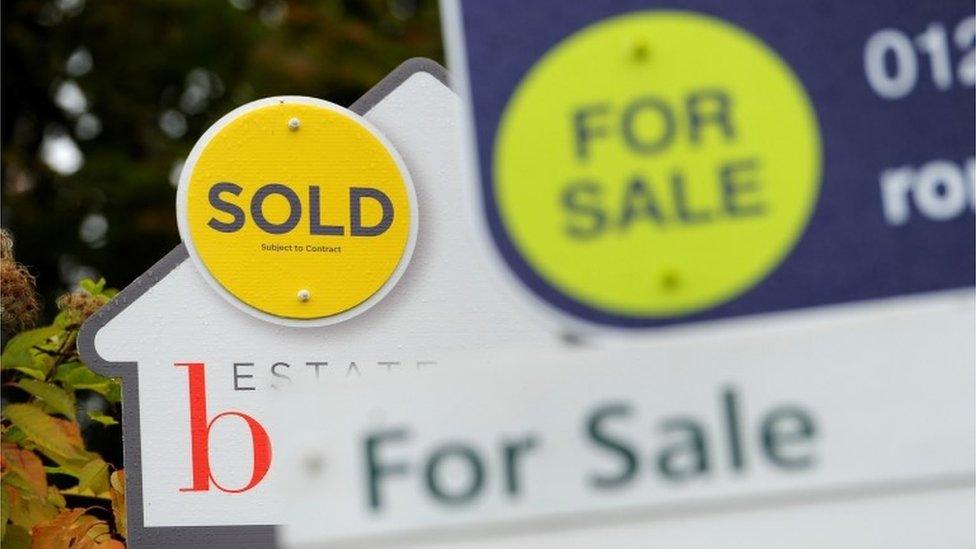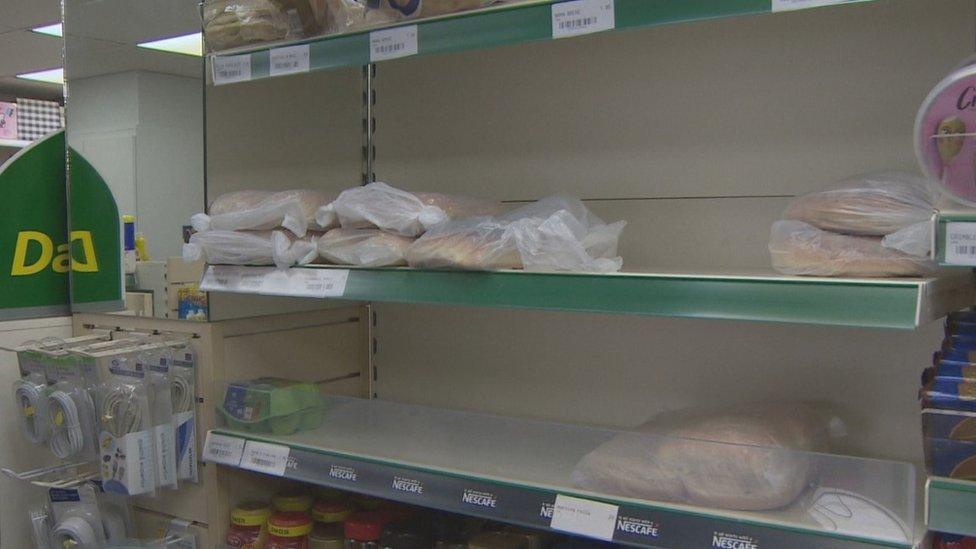Why is economic growth so poor?
- Published
- comments

Is it Brexit? Snow?
The often slightly miserable nature of the first quarter growth figures, affected as they can be by the general economic lull post-Christmas?
A mixture of all or none of the above?
Untangling why the UK's economic growth has slumped so dramatically in the first three months of the year is not easy.
And there are no definitive answers.
Which is one of the main reasons why - although the 0.1% figure is likely to increase the doveish voices in the Bank of England on delaying an interest rate rise - the Monetary Policy Committee will wait for next week's construction, manufacturing and services figures before making a final judgement.
Weak
Brexit uncertainty has been a drag on the economy, as the International Monetary Fund has made clear.
The UK was top of the global growth league of our main industrial competitors before the referendum.
We are now languishing somewhere near the bottom.
Business investment is weak.
But nothing has abruptly changed on Brexit in the last three months to explain the sudden fall.
If anything, many firms - whose investment decisions drive a large part of the economy - consider recent announcements on progress to be more positive than some feared.
Turning to the Beast from the East, the Office for National Statistics says that the effect of the bad weather was "generally small".
And in some sectors - such as energy - demand was up because of the cold conditions.
Nerves
Clearly, though, our most recent winter has had some impact.
The construction sector was down sharply (up to 30 days were lost on house building sites, for example, due to the freezing conditions).
The Beast from the East also appears to have affected fuel sales and high street shopping more generally.
In France, which suffered similar bad weather, growth fell to 0.3% in the first three months of the year from 0.7% in the final quarter of 2017 - though that was as much down to soft investment numbers and slowing exports as the ice.
In Britain, more important than the bad weather is, frankly, us.
The nervous consumer.
Pessimism
Little noticed this morning was the latest GfK Consumer Confidence Index, which is used across the European Union to judge how consumers are feeling.
It is sitting at -9, meaning that people are generally pretty pessimistic about the state of the economy.
It hasn't been in positive territory for precisely two years and four months.
The incomes squeeze of the last year and fears about sluggish growth are major negatives in people's minds.
There is also some initial evidence that house prices in London are starting to fall.
Which could signal a more general weakening in the housing market.
If consumers don't feel confident - or better off - spending is affected.
Household spending accounts for around 60% of value created in the economy.
If that softens, then the whole economy feels the effects.
- Published27 April 2018
- Published5 March 2018
